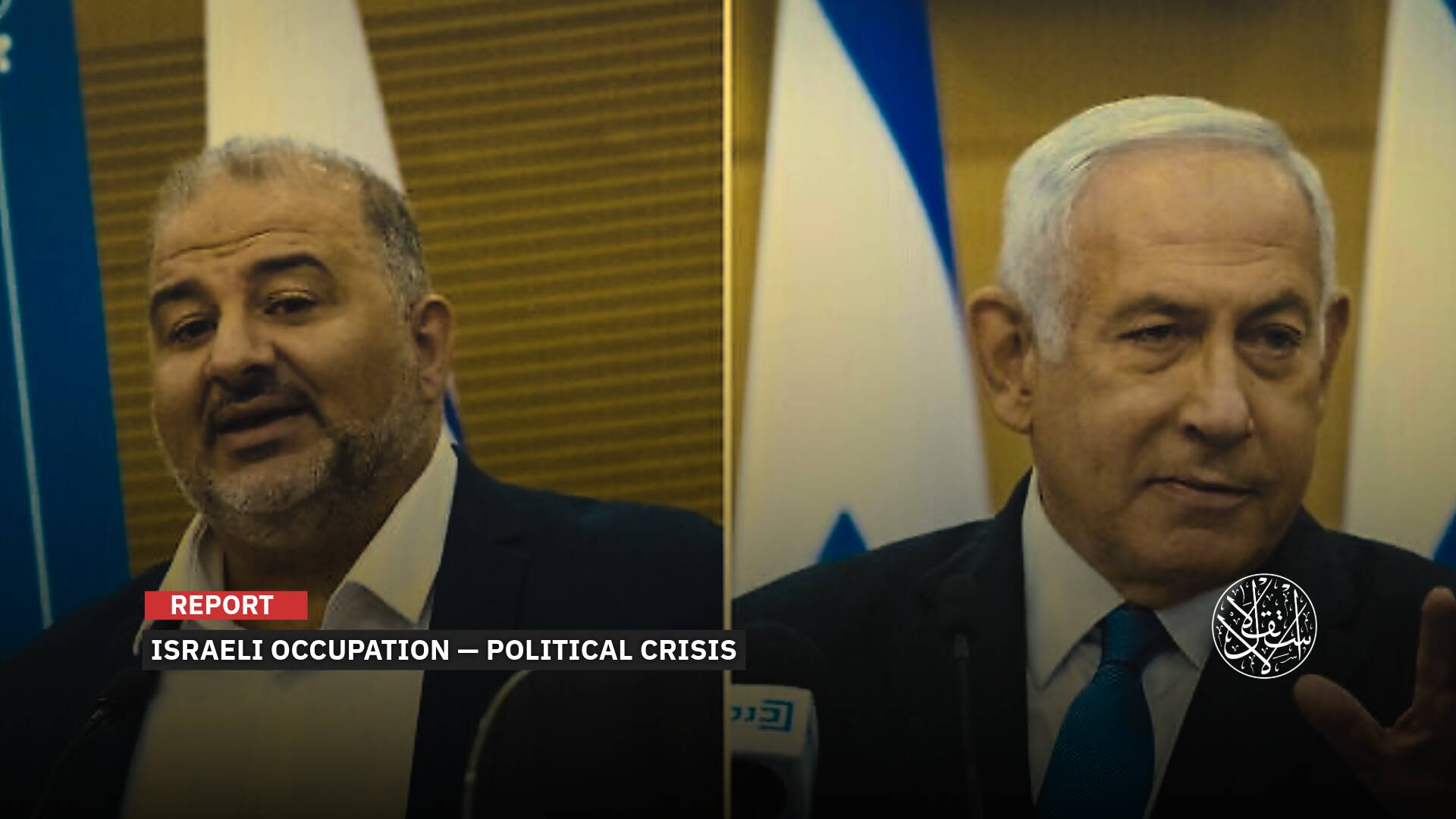Will Scotland Be Ruled by a ‘Muslim’ for the First Time in European History?

A crucial stage in Scotland’s political history begins as members of the Scottish National Party (SNP), numbering around 100,000 people, begin voting on March 13, 2023, to select a new Prime Minister after the resignation of Nicola Sturgeon.
The voting continued for two weeks, and then the final result will be announced today, March 27, 2023, for who the ruling party will choose as its new leader and subsequently the new Prime Minister of Scotland.
The significance of the elections is that, for the first time, a Muslim of Pakistani origin, Humza Yousaf, is competing. He was previously the Minister for Justice and then Health, alongside the Treasury Secretary, Kate Forbes, and the Minister for Local Government, Ash Regan.
A Historic Moment
The elections are described as a “historic moment” because if Yousaf wins, he will be the first Muslim Prime Minister from a religious and ethnic minority in Scotland and Europe’s history, according to The Independent on February 22, 2023.
In case Forbes wins, she will be the youngest Prime Minister in the country’s history, at just 32 years old, and the first official with close ties to the church to hold this position.

The importance of the elections lies in the fact that the ruling party is seeking to hold a referendum on Scotland’s independence from Britain, and Yousaf enjoys strong support from the party leader, Sturgeon, who sees him as a continuation of her separatist project.
The competition between the candidates for party leadership and prime minister revolves around three fundamental issues: separation from the United Kingdom, laws on sexual orientation and minority rights, and the country’s living crisis.
Expectations from Scottish newspapers suggest that the competition between Yousaf and Forbes is diminishing, with both representing different cultures and political trends. The former is Muslim, but Scottish newspapers describe him as modern, while the latter is a church student and a conservative.
Therefore, the struggle between the candidates has turned into modernism, represented by Yousaf, and conservatism, represented by Forbes, according to local media.
While some observers expect Humza’s victory to be similar to the British choice of Hindu Rishi Sunak as Prime Minister of Britain, others believe that the matter may be subject to ideological considerations that favor the white person over the Muslim “foreigner.”
Observers fear that Yousaf will fall victim to this mentality and that his party’s Christian rules will choose Kate, the white church student of Scottish origin, over him as a Pakistani Muslim, despite the party leadership’s support for Yousaf, according to The Independent.
The latest opinion polls conducted by the global survey company “Ipsos” on March 9, 2023, indicate a slight increase in Forbes’ popularity.
The institution (based in Paris) stated that the finance minister enjoys 32% popularity, compared to 24% for Yousaf.
Prior to that, a poll conducted on March 6-7 indicated that one in three voters (33%) in the Scottish National Party sees Yousaf as the next prime minister, while one in three (32%) said the same about Forbes.
Muslims make up about 2% of Scotland’s population, and the number is increasing. They hold leadership positions in major parties.
‘Fasting & Supporting LGBTQ+’
According to followers, there is a problem that may affect the voting of some Muslims and “homophobes,” which is supporting LGBTQ+ issues in Scotland.
This problem pushes some Muslim candidates for positions in the West to accept and support practices that are prohibited by Islam, most notably “the issue of homosexuality.” Some of them claim that they will “balance between their religion’s principles and extreme Western values!”
However, the problem with Yousaf is that he has made many statements about this “homosexuality” issue, perhaps for electoral reasons, as it occupies a large part of the electoral battle alongside the Gender Recognition Act.
To ensure that he is not judged on the basis that he is Muslim and that his faith will reflect on Scotland’s future rule, Yousaf promised that Islam will not affect his policies if he becomes Prime Minister.
He insisted that he celebrates diversity, saying he believes in Scotland’s diversity with its differences and equality.
Yousaf had previously boasted in statements that he is a committed Muslim and fasts during Ramadan, and then tried to suggest that he is modern, as Scottish newspapers describe him, defending the rights of LGBTQ+ individuals.
In an interview with the Scottish news Channel 4 on February 20, 2023, Yousaf described himself as a devout Muslim and said that he will soon celebrate the month of Ramadan, but he insisted that he personally supports the marriage of LGBTQ+ individuals.
It's clear that - regardless of differing views on - independence - LGBTQ people can trust @HumzaYousaf.
— Owen Jones (@OwenJones84) February 20, 2023
Given how rampant Islamophobia is, it's striking that @HumzaYousaf and @SadiqKhan are two Muslim politicians who back LGBTQ equality, unlike certain Christian politicians. https://t.co/PB7I2F6AAf
Yousaf’s roots trace back to a Muslim Pakistani family that migrated to Glasgow in the 1960s. Humza was born in that city in 1985 and studied political science at the University of Glasgow, graduating in 2007 with a master’s degree.

Yousaf studied politics at the University of Glasgow, where he was active in student politics and became the president of the Muslim Students Association.
After graduation, Joseph worked as an assistant to Member of Parliament Bashir Ahmed during his 2007 election campaign. He then moved on to work as an assistant to several other National Party MPs, including Sturgeon.
He also worked as an assistant to former Prime Minister Alex Salmond during his election campaign.
In 2011, Yousaf entered the Scottish Parliament as a Republican Party representative for Glasgow, and in 2012 he held his first ministerial position as a junior minister responsible for international relations and international development at the Foreign Ministry.
In 2016, Yousaf became Minister of Transport, where he spent two years before being appointed Minister of Justice.
Devout Christian
In contrast to Humza, his opponent, Christian Forbes, is completely opposed to his views. She opposes same-sex marriage, opposes children born outside of marriage, and opposes the law facilitating gender reassignment.
She is a committed member of the socially conservative “Free Church of Scotland” and began her campaign by announcing her opposition to issues that contradict the church values, such as same-sex marriage, according to The Guardian.

The Free Church of Scotland, to which Forbes belongs, was founded in 1843 as a dissenting protestant group from the main church current, as an evangelical and Calvinist community.
It is the second-largest denomination in Scotland after the main church, according to the Independent.
The Free Church is known for its opposition to same-sex marriage and abortion, which it describes as contradicting “the teachings of the Holy Scripture.”
Forbes draws her political positions from her conservative church upbringing, which has raised her popularity among the conservative bloc in Scotland. However, LGBT advocacy groups have criticized her and declared their support for Yousaf.
Forbes lost electoral support when she stated that her Christian faith means she believes marriage should be between a man and a woman and that having children outside marriage is wrong, according to Daily Mail.
The Independence Battle
There is another battle over Scotland’s independence from the United Kingdom between Yousaf and Forbes, both of whom support their party’s independence viewpoint. However, the former believes that independence should be pursued immediately and that a republic should be formed away from the British crown.
While the latter prefers a wait-and-see approach, even if it takes six years, and would rather not clash with the kingdom.
In his latest election debate, Yousaf announced that if he were to become prime minister, he would call early elections and ensure an absolute majority of over 60% in alliance with the Green Party and then hold a referendum on independence from Britain.
In an interview with The National on March 13, 2023, he emphasized that his country could abandon the monarchy within five years of independence and replace Prince Charles with an elected president.
His goal, according to his declared program, is to defend Scotland from Westminster’s seizure of power and to achieve independence, hence why some London newspapers describe him as the Muslim politician who could cause the disintegration of Britain.
Only with independence can we unleash our nation's potential. I will:
— Humza Yousaf (@HumzaYousaf) March 14, 2023
1️⃣ Defend Scotland's democracy from Westminster power grabs.
2️⃣ Lead from the front as First Activist.
3️⃣ Build support and deliver independence.
Together, we will win independence for ��������������.#HumzaForScotland pic.twitter.com/SH61vpR6tS
While Forbes believes that the pursuit of independence should happen when the conditions are ripe and does not object to postponing the referendum for six years so as not to enter into confrontation with the kingdom, the Scots chose to remain within the United Kingdom by 55% in a referendum held in 2014. However, Scotland returned to demand independence after the death of Queen Elizabeth and intends to organize a new referendum after the Supreme Court in London rejected its request to vote on independence.
In the June 2016 Brexit referendum, 62% of Scottish voters voted to remain in the European Union, but the majority of the U.K. voted to leave, so Scotland decided to become independent.
There has been a shift in the Scottish mood towards separation from the British crown, as reflected in opinion polls conducted by more than one research center, perhaps due to the role played by the late Queen Elizabeth in emotionally attracting them to stay within the United Kingdom.
In a survey conducted by the British website YouGov on September 15, 2020, 70% of Scots supported independence from the United Kingdom. A separate poll conducted by the British Future Research center on May 18, 2022, found that only 45% in Scotland wanted to remain in the royal system, compared to six in 10 people across the U.K.
The poll showed that more than a third of Scots (36% out of a population of 5.5 million) said that the end of Queen Elizabeth II’s reign would be the right time to abolish the monarchy and turn Scotland into a republic. Meanwhile, the latest survey conducted by the Redfield Wilton Strategies research team on March 8, 2023, showed that 51% of participants in Scotland confirmed that they would vote “no” if there were a referendum on Scottish independence, while 42% said they would vote “yes” for an independent state.
Sources
- What a Humza Yousaf victory means, in Scotland and beyond
- SNP leadership frontrunner Humza Yousaf is grilled on gay marriage and religion after fellow candidate Kate Forbes lost support for saying her Christian faith means she believes marriage should be between a man and a woman
- Kate Forbes Scots' favourite to become next First Minister, poll finds
- Yousaf: My election as first minister would be ‘seminal moment’ for Scotland











